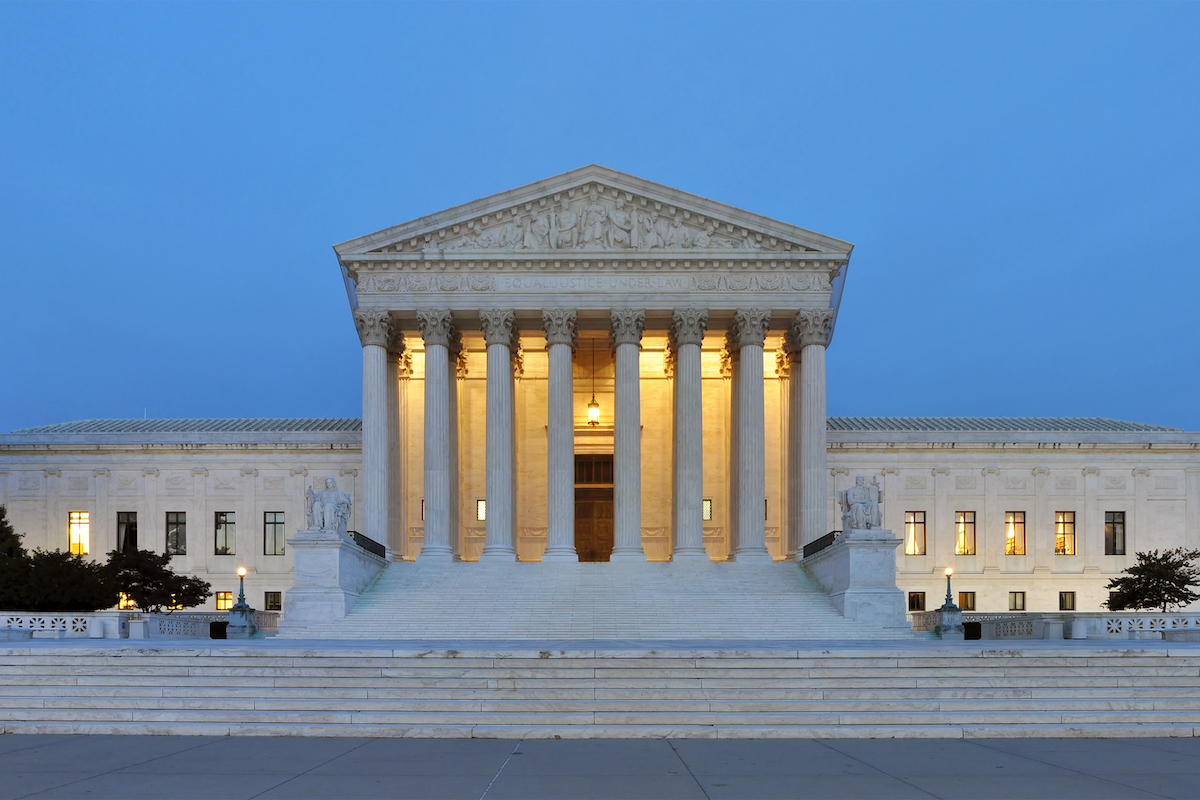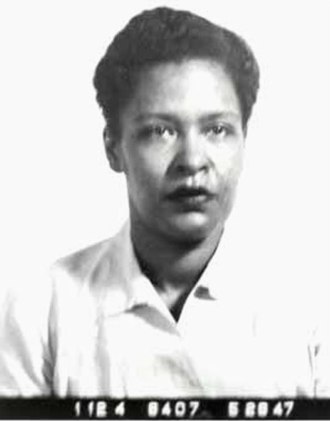The Poodle Weeps: Spending the Fourth with the Supremes
How Billie Holiday Explains the Three Recent Supreme Court Rulings

BILLIE HOLIDAY ON THE SUPREMES: I celebrated the Fourth this year by trying to make sense of the three six-to-three bombshells the Supreme Court just dropped on us before taking off — hopefully not on some billionaire benefactors’ private jets — for their summer recess. I was reading Chief Justice John Roberts’s opinions. I was reading Justice Ketanji Brown Jackson’s dissents.

I was straining to conjure a unified field theory that would explain these rulings when Billie Holiday — one of America’s all-time great jazz vocalists — showed up from the other side of the grave to give me a swift kick in the ass.
Holiday — who died of despair, disgust, persecution, and cirrhosis of the liver in 1959 — had synthesized all three opinions down to their bare bones back in 1941. “Them that’s got shall get,” she wrote in “God Bless the Child,” one of the truly all-time great songs in the history of infinity. “Them that’s not shall lose. So the Bible said, and it still is news.”
Holiday might know a thing or two on this score. Born Eleanora Fagan and raised in Baltimore, Holiday was sent to a Catholic reform school as a young child, for being a truant, and was later sexually assaulted at age 10 by a man four times her age.
The first of the three court decisions that poked me in the eye is a case brought against Harvard and the University of North Carolina, the Supreme Court decreed that colleges and universities henceforth may no longer consider an applicant’s race — even as one factor of many — when evaluating them for admission.
At the University of North Carolina, race has been one of 40 factors that might be weighed, but only if the applicant raises it. Chief Justice Roberts argued such race-based considerations “demeaned the dignity and worth of a person to be judged,” adding that the objectives were so fuzzy as to defy any statistical evaluation of what progress was made and when — if ever — success could be declared. It was a well-crafted piece of intricate lawyering inexorably leading to a “nothing can be done” conclusion.

But Justice Ketanji Brown Jackson countered with a dissent that — for my money — blew all Roberts’s impressive lawyering to smithereens with a historical treatise of current and past practices going back seven generations — state-sanctioned and otherwise — that have left Black people holding the short end of the stick when it came to health, housing, wealth, and education. “With let-them-eat-cake obliviousness, today, the majority pulls the rip cord and announced ‘colorblindness for all’ by legal fiat. But deeming race irrelevant in law does not make it so in life,” she declared.
In another case, the Supremes invalidated the $420 billion in student debt relief issued via executive fiat by President Joe Biden, insisting that only Congress, not the president, has the constitutional authority to control the purse strings. I understand Biden’s actions may have been legally and politically crude, but it’s also worth noting that two of the justices who opined against this relief have failed to disclose hundreds of thousands of dollars in free travel arrangements and accommodations heaped upon them by Dark Money donors with business in front of the court.
Lastly, the Supremes came to the rescue of a webpage designer worried she might get sued if one day she was asked to do web design for gay weddings. This would conflict with her religious beliefs and she’d have to say no. None of this, in fact, had ever happened, calling into question her standing to sue and the cases’ ripeness to be heard. I know that legally it’s not the same, but I can’t get the image of Civil Rights protesters trying to get served at the North Carolina Woolworth’s lunch counter back in the early ’60s only to have coffee poured over their heads — among other things — out of my mind.
Justice Jackson never mentioned Billie Holiday in her dissenting opinion detailing the health impact of holding the short end of the stick for seven generations, but she very well could have. In 1939, Holiday first performed the song “Strange Fruit,” a horrifically poetic exhumation of the lynchings then still happening in Southern states. Holiday soon came to end all her shows with a performance of that song. She refused to start singing until club audiences became still and silent.
This song — and everything it stood for — infuriated, Henry Anslinger, the head of the Federal Bureau of Narcotics from 1930 to 1962. Anslinger hated addicts, he hated jazz, he hated jazz musicians, and he especially hated Black people. During his early career, Anslinger’s official reports were so choked with the N-word — “Reefer makes darkies think they’re as good as white men”—that even the Republican Senator representing Anslinger’s home state of Pennsylvania tried to get him fired. And that was in the 1920s. Anslinger warned Holiday — a well-known drug addict and alcoholic — against performing “Strange Fruit.” But as they say, she persisted.
Anslinger dispatched a Black undercover agent to get the goods on Holiday. He did so, but not before falling in love with Holiday. Still, Anslinger — the man most responsible for the 1937 law that put cannabis on the same criminal footing as opium and cocaine — got Holiday locked up in a West Virginian prison for a year. When she got out, Anslinger made sure she couldn’t get the cabaret license needed to perform in clubs.
When she went to San Francisco — where such licenses weren’t necessary — Anslinger sent Colonel George White after her. Depending on whom you believe, White had drugs planted in Holiday’s Mark Twain hotel room. This time, she checked herself in for treatment.
By any reckoning, White was a rare piece of work. During much of the 1950s, he worked with the CIA as part of a clandestine mind-control-truth-serum program in which he ran two safe houses — one in New York and one in San Francisco — where prostitutes he’d hired would spike their customers’ drinks with LSD. There, the subjects would be observed by clinicians watching through one-way mirrors. The idea was to see if that made them talk.

As much as Anslinger hated all addicts, he was hardly an equal-opportunity hater. He was not a color-blind, race-neutral hater. Where Holiday was concerned, there was a toxic animus. In dealing with Judy Garland, another tragic diva addicted to drugs — and famous for performing the song that would later become the Gay National Anthem — Anslinger would kindly counsel Garland to take longer vacations between movies.
With Wisconsin’s red-baiting, witch-hunting Republican senator “Tail Gunner” Joe McCarthy — who also had an opioid addiction — Anslinger made sure McCarthy got drugs from a reputable pharmacy in Washington, D.C.
When Holiday collapsed of exhaustion in New York in 1959, she was eventually taken to the Municipal Hospital after having been refused service at another one because she was an addict. Holiday predicted narcotics agents would arrest her in her hospital bed, and her fears were borne out. Agents claimed they found a small bindle of heroin nailed to the wall. Protests by her supporters erupted outside the hotel. Mug shots of Holiday were taken in that bed; she was fingerprinted in that bed; she was handcuffed to the frame of that bed. She died in that bed on July 17, 1959. She was 44 years old.
Riffing on the title of another of Holiday’s great songs, Anslinger commented on Holiday’s death, “For her, there would be no more ‘Good Morning Heartache.’”
“Thems that got shall get. Thems that not shall lose. So the Bible says. And it still is news.”
Don’t take my word for it. Listen for yourself.




You must be logged in to post a comment.